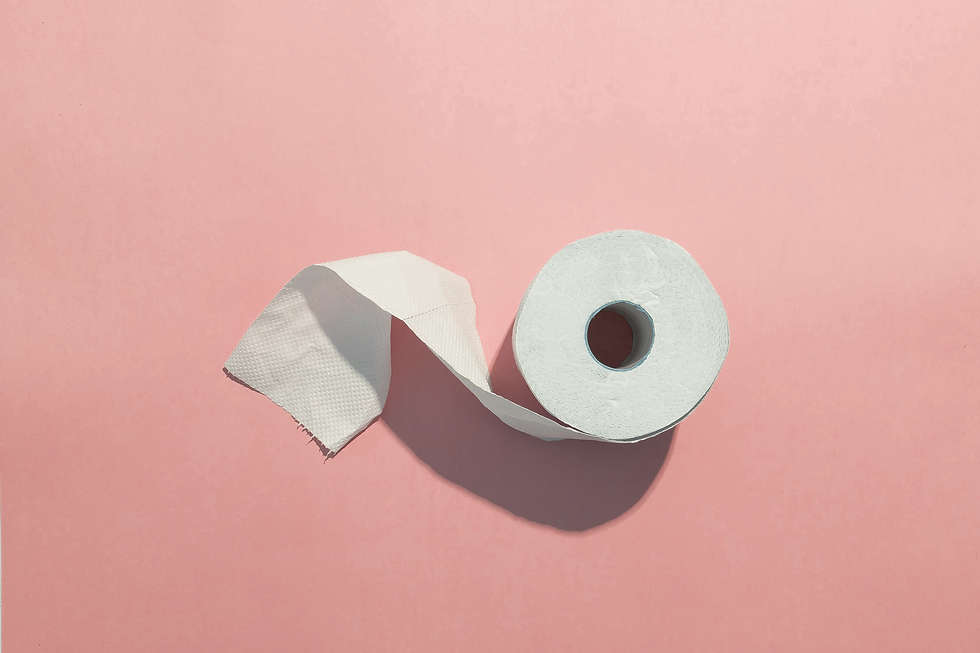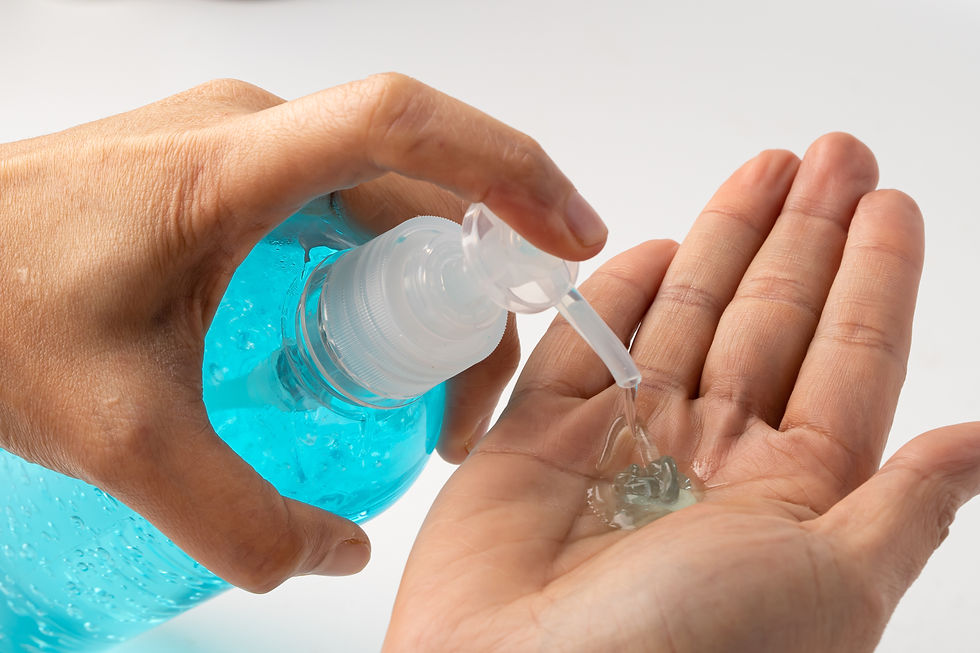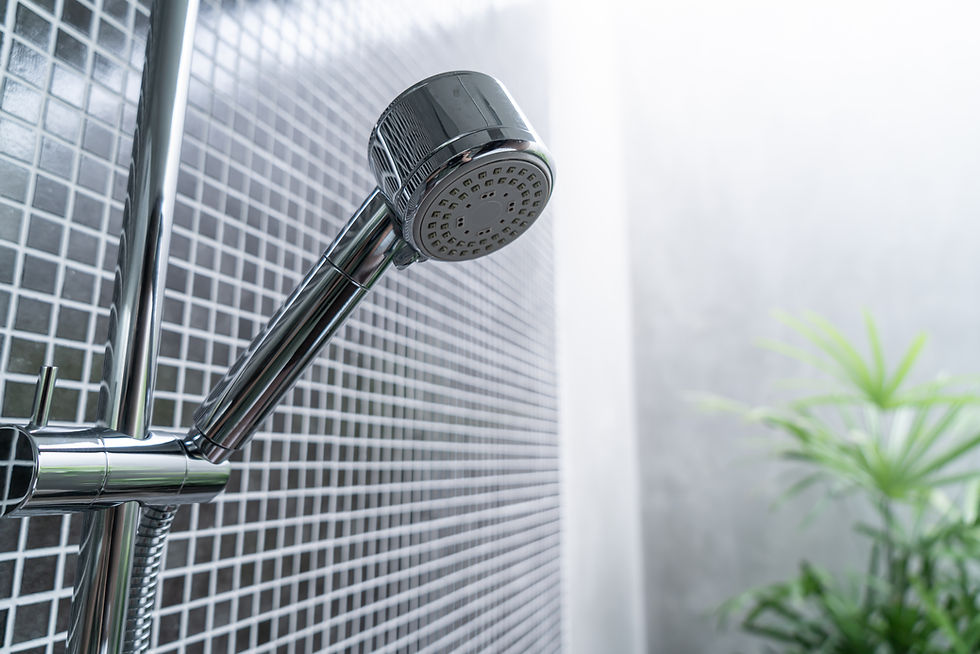Vaginal Hygiene 101
- Marketing cheryl
- Feb 2, 2023
- 4 min read
In last week’s article, we talked about maintaining menstrual hygiene, but what about when we are not on our periods? It is still important to maintain personal hygiene of the urogenital areas.
Vaginal hygiene may not be something explicitly taught in school, but it is definitely important for us women, as maintaining hygiene down there helps to prevent vaginal and urinary infections. Apart from an increased risk of urogenital infections, improper vaginal hygiene can result in symptoms that can become a hindrance to our daily lives, such as itchiness and burning sensations.
Here are some simple tips you can follow to maintain vaginal cleanliness!
1. Wipe from front to back

When you’re done with your business in the washroom and are getting ready to clean up, wiping from front to back is more ideal than wiping from back to front. This is because there may be harmful bacteria in the area around the anus, such as E. Coli (which causes Urinary Tract Infections, or UTI). Wiping from back to front will increase the spread of such bad bacteria from the anus to the vaginal area and thus cause urogenital infections.
A clinical study investigating the association between wiping and urogenital infections showed that of the 682 women that participated in the study, 304 women who wiped from back to front had a higher incidence of UTIs.¹ Thus, to reduce the risks of bacterial infections, always remember to wipe from front to back!
2. Avoid vaginal washing & soap

Vaginal washing refers to washing the insides of your vagina with water to clean it. Believe it or not, this practice doesn’t actually clean the vagina and in fact is associated with increased risks of Bacterial Vaginosis (BV).² This is because vaginal washing may disturb the vaginal microbiota and cause it to become imbalanced, increasing the vagina’s vulnerability to infections. Additionally, products such as scented soaps can cause the vaginal environment to become less acidic³ which is actually bad as a slightly acidic vaginal environment is necessary for a healthy, balanced vaginal flora. This hence can cause vagina irritation and infection.
In fact, there’s no need to clean the inside at all - your vagina is self-cleaning! The discharge your vagina secretes helps keep it clean by removing dead cells from the vaginal lining. Its balanced microflora also works to keep the vaginal environment slightly acidic, so there is no need to worry about the inside.
3. Choose loose cotton panties

Cotton panties can help absorb excess moisture from the vagina, such as vaginal discharge. They are also more breathable, which can prevent excess warmth from building up in the vaginal environment. Both of these properties are important in preventing harmful bacteria from breeding, as bacteria prefer to grow in warm moist environments. Cotton panties may also help prevent vaginal thrush, as a clinical study showed that women with non-cotton underwear were found to be at a higher risk of vaginal thrush.⁴ Less tight fitting underwear also help to make the vaginal area more breathable, thus reducing risk of trapping moisture and decreasing risk of urogenital infections.
4. Keep it dry down there & clean gently with water externally

When your vaginal environment is excessively moist from factors such as vaginal discharge, sweat or urine, this encourages the growth of harmful bacteria, which can lead to bacterial infections. It may also cause unpleasant odor to buildup. Thus it is advisable to prevent the buildup of such moisture by keeping it dry down there. You can also clean your vulva (external part of the female reproductive organ) using warm water to get rid of fecal contamination, sweat, urine or excessive vaginal discharge³, though be careful not to use irritants (such as soap) or douche.
Tips like wiping from the front to back, avoiding vaginal washing and soap, choosing loose cotton panties and keeping the vagina area dry and clean, are useful to maintain vaginal hygiene and reduce the risk of getting vaginal infections. These methods are by no means foolproof at preventing urogenital infections, but they will make you feel better and cleaner down there. By practicing these tips together, it will help to promote urogenital health and make us more confident overall.
References
Persad, S., Watermeyer, S., Griffiths, A., Cherian, B. and Evans, J. (2006). Association between urinary tract infection and postmicturition wiping habit. Acta Obstetricia et Gynecologica Scandinavica, 85(11), pp.1395–1396.
Sabo, M.C., Balkus, J.E., Richardson, B.A., Srinivasan, S., Kimani, J., Anzala, O., Schwebke, J., Feidler, T.L., Fredricks, D.N. and McClelland, R.S. (2019). Association between vaginal washing and vaginal bacterial concentrations. PLOS ONE, 14(1), p.e0210825.
Chen, Y., Bruning, E., Rubino, J. and Eder, S.E. (2017). Role of female intimate hygiene in vulvovaginal health: Global hygiene practices and product usage. Women’s Health, [online] 13(3), pp.58–67.
Fernandes, Â., Azevedo, N., Valente, A., Dias, M., Gomes, A., Nogueira-Silva, C., Henriques, M., Silva, S. and Gonçalves, B. (2022). Vulvovaginal candidiasis and asymptomatic vaginal colonization in Portugal: Epidemiology, risk factors and antifungal pattern. Medical Mycology, [online] 60(5), p.myac029.
Disclaimer: The article content is intended for informational or educational purposes only, and does not substitute professional medical advice or consultations with healthcare professionals. The disclaimer also provides that no warranties are given in relation to the medical information supplied in the article, and that no liability will accrue to Miraco Nutripharm Pte Ltd or any affiliated authors in the event that a user suffers loss as a result of reliance upon the information.




CAN I GET MY LOST OR SCAMMED BITCOIN BACK? YES, WHEN IT COMES TO BITCOIN RECOVERY// CONTACT THE HACK ANGEL RECOVERY EXPERT.
Forex trading has destroyed the lives of many people. I lost $857,500 worth of Bitcoins to a fake cryptocurrency investment platform. A few months back, I saw an opportunity to invest in cryptocurrency to make huge profits from my investments. I contacted a broker online who was pretending to be an account manager for a forex trading firm, I invested a huge part of my retirement savings and business money into this platform not realizing it was all a scam to steal away my money. I was unable to withdraw money or even contact the account manager, aforementione…
Good luck to anyone reading this true life story of mine, I Was Diagnosed With type 2 Herpes Virus Last year, And I Was Looking For Solution To Be Cured Luckily I Saw Testimonies On How Dr OYAGU Cure Herpes Virus I Decided To Contact Dr OYAGU I Contacted Him He Prepared A Herbal Medicine Portion And Sent It To Me, I Started The Herbal Medicine For My Health. He Gave Me Step By Step Instructions On How To Apply It, When I Applied It As Instructed, I Was Cured Of This Deadly Herpes Within 2 weeks, I Am Now Herpes Negative. My Brother And Sister I No That There Are So Many People That Have The Same Herpes Virus…
I am excited to share some uplifting news with you all! Last year, I faced a challenging diagnosis of herpes and HPV, which was truly heartbreaking. However, I embarked on a journey to find solutions and recently discovered Dr. Agumba, a highly recommended herbalist. After just three weeks of his herbal remedies, I am thrilled to say I am now completely cured! If you or someone you know is facing similar challenges, I encourage you to reach out to Dr. Agumba for support. You can visit his website at https://dragumbasolutioncent.wixsite.com/spell or contact him via WhatsApp at +2349032173881. email, dragumbasolutioncenter@gmail.com
I want to thank Dr. Riaria for helping me with his herbal medicine to cure my herpes virus completely without any side effects, i really suffered from this virus for the past 3 years, Right now I'm herpes negative after using the herbal medicine sent to me by Dr. Riaria. I gave all thanks to God for leading me to Dr. Riaria who was able to cure me completely from herpes virus, you are the best traditional herbal doctor in the world, God bless you sir. Contact him via email: drriaria@gmail.com or WhatsApp him on +2347010627760.
You can check on his website for more Info:
https://drriaria.wixsite.com/website
I recommend you to get your herbal medicine through Herbal Miracle Medicine . He cured me from my herpes outbreak and now I am free . All thanks for your care and giving me my life back . If you are suffering from any illness you can get your medication from Doc Moses Buba on his .
email him on ( buba.herbalmiraclemedicine@gmail.com )
Facebook page: https://www.facebook.com/profile.php?id=61559577240930
website:https://bubaherbalmiraclem.wixsite.com/website